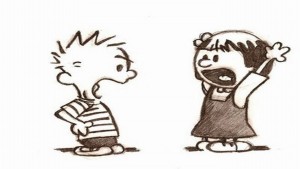Janie and Charlotte were best friends in college. They still maintain a good friendship even though Janie grew to the “Right” while Charlotte grew to the “Left” and now have some very different perspectives on politics, culture and theology. Charlotte and Janie have begun talking about their differences in a shared blog. You can find their earlier conversations here.
Janie: In our last conversation, we left off with a question from you: “Why does diversity cause such fear and anger in people? And how is unity possible when there is a fundamental rejection of our inherent diversity?” 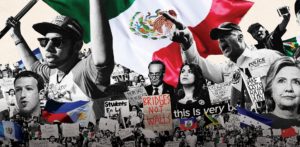 We also agreed to look further into a widely-discussed Atlantic article by Peter Beinart: “How the Democrats Lost Their Way on Immigration.”
We also agreed to look further into a widely-discussed Atlantic article by Peter Beinart: “How the Democrats Lost Their Way on Immigration.”
To address your first question: Diversity causes fear and anger in some people regardless. I do believe that the majority of Americans, both conservative and liberal, have no problem with diverse groups who come to America wishing to be Americans. It’s true that most of us are more comfortable hanging out with people who are like us, with common interests and goals, but that’s only human. By and large Americans take a live-and-let-live approach to other cultures as long as we perceive no threat. Most of us, I think, even get a little misty-eyed when a naturalization ceremony is televised, when new citizens of every shade and background express their joy at becoming part of this nation.
As for the second question, I’m not sure about your premises. I read your blog about Unity in Diversity and found some of it puzzling. You say, “Our unity has always, will always arrive out of our shared values and our common dreams: liberty and justice for all . . . a union the Founders conceived in the midst of the creative diversity of their day and . . . still being perfected here in the ethnic, religious, and intellectual diversity of our own day.” The stated shared values of the founders were “life, liberty, and the pursuit of happiness,” but I would say liberty was the chief value that pulled all thirteen colonies together. That was in opposition of many of their own citizens who didn’t see the need to separate from the mother country. The “creative diversity” you mention wasn’t nearly what it is today—almost all the colonists were white, Christian (by identity if not practice), and of European descent. Their very real regional diversity was not a source of strength—it was a serious weakness that tore the nation apart in a mere fourscore and four years.
Over the last thirty years or so I’ve been hearing that American strength lies in its diversity. But that makes no sense on the face of it; strength lies in unity. Diversity is great for expanding our little worlds, learning generosity and humility, and trying lots of delicious new recipes! But diversity in itself is not strength. We are stronger when can come together in spite of our diversity, not because of it, and that means discovering our shared values and being willing to defend them.
That’s what makes some of us nervous. As Beinart says near the end of his article, “Americans know that liberals celebrate diversity. They’re less sure that liberals celebrate unity.” What are those shared values, exactly? What do we have to fear from immigrants and even native-born citizens who regard most of American history as a chronicle of injustice? How should we feel about undocumented immigrants waving Mexican flags at protest rallies? What about groups like LaRaza and the New Black Panthers, who don’t appear to have any interest in unity?
You asked about assimilation. To me, that does not mean giving up your culture, your special holidays and observances, or even your language. It does mean accepting the Constitution as the law of this land, obeying the laws, learning English (or at least encouraging your children to learn it), and pledging allegiance to the flag. What about you?
Charlotte: I said at the outset of these conversations that I believe you and I can find much to agree on and I think we are finding some of that agreement here. For example, I can certainly agree with your description of assimilation above and I appreciate that you don’t think assimilation demands giving up one’s culture. Of course all people who live here should accept and obey the laws. But I have to wonder if your statement implies that immigrants and newcomers disrespect and disobey laws more than natives do. You said before:
What some fear…is allowing in more immigrants, “legal” and not so much, who do not subscribe to American ideas and want to change it to something else. Or they’re coming for welfare benefits or criminal activity or outright subversion. These are the minority, I know, but there are significant numbers to cause concern.
Where is this coming from, this conviction that there are “significant numbers” of immigrants who do not subscribe to American ideas and want to change it to something else? I know it’s out there; I see it too. But I don’t believe it’s nearly as real as many Conservatives think it is.
Stereotyping is rampant and over the top these days: “Hispanics are all illegal and here to steal your jobs and rape your daughters. Muslims are all terrorists and secretly plotting to subvert the Constitution into sharia law.” A LOT of people actually believe this stuff! How do we combat such harmful prejudices?
You say you don’t understand the premise of this question of mine: “How is unity possible when there is a fundamental rejection of our inherent diversity?” Then you quote from my blog and say some things there “puzzle” you. I am puzzled why you are puzzled; it seems pretty straightforward to me. I have been a huge advocate for unity for years and I thought my blog portrayed that passion.
Old and Young. Rich and Poor. Gay and Straight. Religious and Humanist. Black and White and Brown. E pluribus unum. From many, one.
When we move out of our uniform, homogeneous tribes and recognize the shared humanity inherent within our wide-ranging diversity, that’s when we will discover a glimpse of a true unity that is far better than any sort of uniformity.
So I am agreeing with you that affirming our shared humanity and our common goals is an important source of our unity.
But then again, I have had experience talking to people who seem to believe even naming our differences is divisive. I’ve heard people say they are “color-blind” and they only see how we are alike. But that’s just not possible. We ARE different. Our diversity is a fact. And honoring each person’s uniqueness honors their humanity.
I do believe that both our variety AND our commonality provide strength for America. Tapping into people’s different perspectives, abilities, experiences, insights and then crafting all that varied wisdom into approaches that help us attain our common goals is what this nation has done again and again. Our variety gives us a broader base of resources. If my husband and I are unified in our desire to buy something we want but really can’t afford, then that unity is no strength. On the other hand, if one of us says: “Wait. Let’s look at if from another perspective,” then it’s our differences that make us stronger.
Our disagreement here is slight. (I would not say our strength is “in spite of our diversity.” That’s too negative a phrase.) But we both make the point that our strength lies in coming together from our diversity into unity. (But not uniformity, as I say in my blog.)
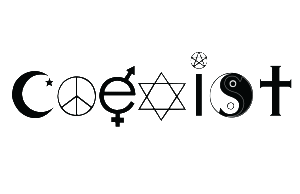 Here is a moving essay from Parker Palmer, wise Quaker. He too celebrates the strength of our American diversity and understands its valuable contributions to our efforts for unity.
Here is a moving essay from Parker Palmer, wise Quaker. He too celebrates the strength of our American diversity and understands its valuable contributions to our efforts for unity.
I’m arguing from my perspective on the Left and I asked an honest question about “Why does diversity cause such fear and anger in some people” from the Right. And I have to say that all my reading and pondering and conversing brings me to this conclusion: White Christian America is being displaced and diluted and I believe much of the anxiety we see has to do with that loss of power and privilege. When we look closely, it’s pretty obvious that the immigration debate is primarily about Brown people.
Back to the Peter Beinart article in The Atlantic. He says this:
Studies by the Harvard political scientist Robert Putnam…suggest that greater diversity doesn’t reduce trust and cooperation just among people of different races or ethnicities—it also reduces trust and cooperation among people of the same race and ethnicity.
Trump appears to sense this. His implicit message during the campaign was that if the government kept out Mexicans and Muslims, white, Christian Americans would not only grow richer and safer, they would also regain the sense of community that they identified with a bygone age…
This echoes my own diagnosis. And it repeats my question: why does greater diversity reduce trust and cooperation? Are we doomed to such a small practice of our shared humanity? Or can Conservatives and Liberals find our common ground and widen it into a great space?
Janie: Okay, I’ve been thinking about this. I do believe conservatives and liberals need to find common ground in order to make policy, but I’m afraid “shared humanity” is so broad as to be unworkable. Let me offer two examples.
In 1867 Karl Marx published Das Kapital. By the end of the decade hundreds of Eastern European immigrants to America were committed socialists. The years between 1878 and 1898 saw bloodiest labor wars the USA has ever experienced. There were lots of reasons for this, not just immigrants with bad ideas. But in most of those riots and shootouts, eastern Europeans were prominent players. There were some positive effects in focusing attention on severe labor abuses and gradually bringing change; I suppose you could say diversity helped bring about eventual unity. But it was at a great cost over an issue that could have been handled other ways, and made socialism seem like a viable alternative for the US, at least for some. I don’t want to debate the virtues of socialism just now (!), only to say that, in my opinion at least, socialism as a system is not compatible with the nation that was founded in 1776.
Another system incompatible with the US, and with the western tradition generally, is Sharia Law. I have no idea how widespread the notion of imposing Sharia Law in this country might be. In some areas of high Muslim concentration, such as Dearborn and Detroit, judges are trying to figure out how to balance practices connected with Sharia (such as female genital mutilation) against American civil law. But the huge influx of Muslim immigrants is becoming a significant problem in Europe. A couple of weeks ago I came across this article, which has also been referred to me by others. The title is alarming: “I’ve Worked with Refugees for Decades. Europe’s Afghan Crime Wave is Staggering.” The point is not that Muslims should not be admitted to safe havens in Europe, but that certain Muslims who subscribe to a radical form of Islam (which includes imposing Sharia Law) are wreaking havoc by their utter contempt for Western standards.
Could that happen here? The US is very different from Europe, culturally and geographically, so I don’t know. But I think that is what some are afraid of, and an example of what I meant by certain immigrants wanting to make this country into something else. What are we willing to allow? What are we prepared to defend? What principles of this nation must be protected at all cost, and (this is crucial) what policies will help protect them? “Liberty and justice for all” is not a policy; it’s an ideal. As we encountered before in our debates about health care: Nobody is arguing about the ideal, but how do we institute these noble goals without bankrupting ourselves or committing suicide? More to the case, what policies do we need to continue as a welcoming nation committed to liberty, free speech, and opportunity?
Charlotte: A lot of my liberal friends and I wonder if the agenda of far right white Christians is our own homegrown version of a kind of “sharia law.” I have to say some of the proposed policies of my Texas legislators are “alarming” and “wreaking havoc” in our communities. Here’s an article for you to consider with a fair number of comments that voice some of our anxieties. (Article from the Texas Observer exploring Dominion Theology: “The Fringe Theology That Could End Religious Freedom.”)
How ’bout I read your article and do some homework so I can respond to your concerns and you read mine and tell me how you would help allay my fears? Sounds like another challenging topic for our next conversation. I’ll start.
Janie B. Cheaney blogs at Gobsmacked by Life … sometimes
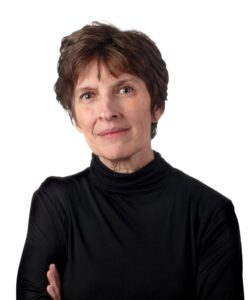
Janie has published six novels for teens. Her historical fiction is especially well done with solid research, engaging characters and great writing. Janie’s J.B.Cheaney Facebook page is a fun and helpful author resource.
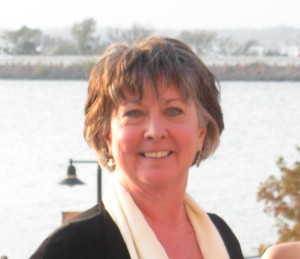 Charlotte Vaughan Coyle lives in Paris TX and blogs about intersections of faith, culture and politics on her website and Intersections Facebook page. She is national secretary for Coffee Party USA and contributes regularly to the Join the Coffee Party Movement Facebook page.
Charlotte Vaughan Coyle lives in Paris TX and blogs about intersections of faith, culture and politics on her website and Intersections Facebook page. She is national secretary for Coffee Party USA and contributes regularly to the Join the Coffee Party Movement Facebook page.
Charlotte is an ordained minister within the Christian Church (Disciples of Christ) and also blogs about Scripture from a progressive Christian approach in her Living in The Story Musings.
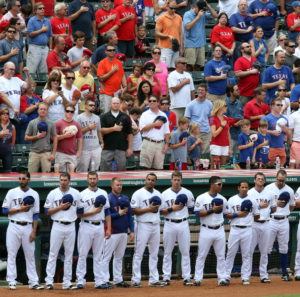 It explains why we place our hands over our hearts, remove our hats and stand in reverence in the presence of our red white and blue sacred symbol and our holy hymns.
It explains why we place our hands over our hearts, remove our hats and stand in reverence in the presence of our red white and blue sacred symbol and our holy hymns.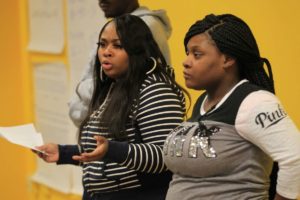 about an effort in Philadelphia to raise bail for moms who had been incarcerated for quite a long time just because they were too poor to raise $500 for their bail money. Here they had been sitting in jail for several months, separated from their children, unable to work to support their families, awaiting their trial. These were people who had been accused of crimes, but not tried, convicted or sentenced. Because of this bail out effort, they were released to go be with their children for Mothers Day and await trial while taking care of their families.
about an effort in Philadelphia to raise bail for moms who had been incarcerated for quite a long time just because they were too poor to raise $500 for their bail money. Here they had been sitting in jail for several months, separated from their children, unable to work to support their families, awaiting their trial. These were people who had been accused of crimes, but not tried, convicted or sentenced. Because of this bail out effort, they were released to go be with their children for Mothers Day and await trial while taking care of their families.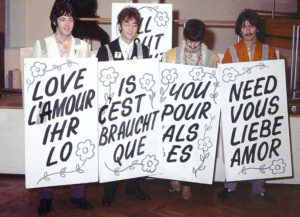 It was fifty years ago that the
It was fifty years ago that the 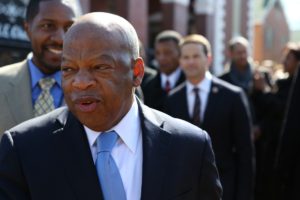 In that interview, Rep. Lewis said these amazing words:
In that interview, Rep. Lewis said these amazing words: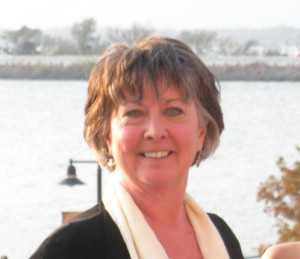 She is national secretary for
She is national secretary for 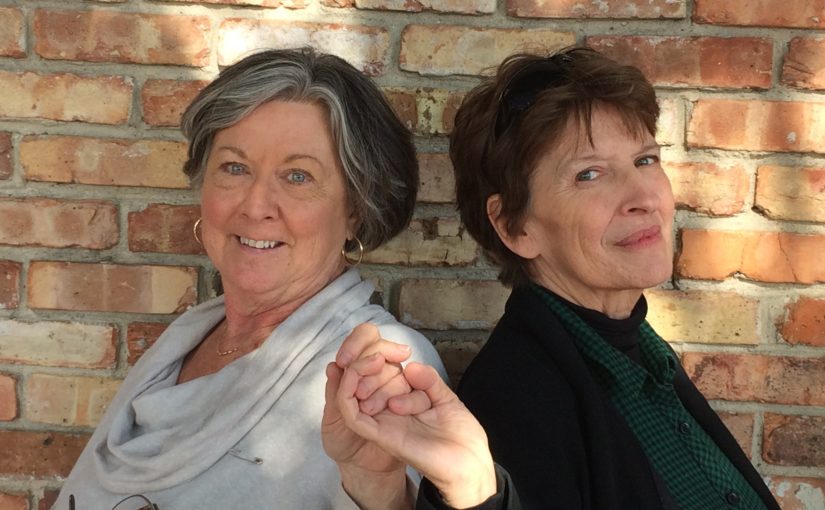
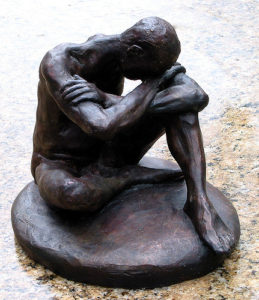 In the days between the two processions, it is said that Jesus looked across at his beloved city and wept.
In the days between the two processions, it is said that Jesus looked across at his beloved city and wept. I know better. And Taliesin knew and Martin knew and Mahatma knew and Jesus knew.
I know better. And Taliesin knew and Martin knew and Mahatma knew and Jesus knew.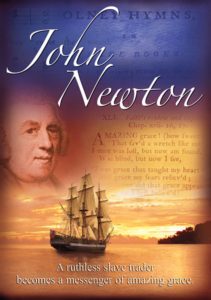 was raised in England by a devout mother but in his youth he chose a life of drinking and brawling and then as crew on slaving ships between West Africa and England. Once, while carrying its horrific human cargo, Newton’s ship sank and his near death experience drove him to faith. He eventually became an Anglican priest and wrote the words of this poem for his New Year’s Day sermon in 1773.
was raised in England by a devout mother but in his youth he chose a life of drinking and brawling and then as crew on slaving ships between West Africa and England. Once, while carrying its horrific human cargo, Newton’s ship sank and his near death experience drove him to faith. He eventually became an Anglican priest and wrote the words of this poem for his New Year’s Day sermon in 1773.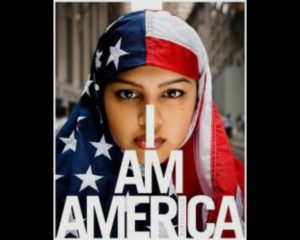 Like many of us, Muslims hold a variety of opinions about a range of issues. Like most of us, Muslims demonstrate how individuals can hold both progressive and traditional ideals within a healthy tension.
Like many of us, Muslims hold a variety of opinions about a range of issues. Like most of us, Muslims demonstrate how individuals can hold both progressive and traditional ideals within a healthy tension.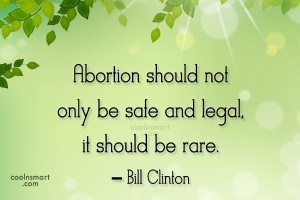
 Intolerance, narrow mindedness, disdain, disgust, exclusivism and judgmentalism are not progressive values. American Progressives need much less finger pointing and much more soul searching. We’ve made plenty of political blunders and it’s high time we own up to our mistakes so that we can correct them and move forward.
Intolerance, narrow mindedness, disdain, disgust, exclusivism and judgmentalism are not progressive values. American Progressives need much less finger pointing and much more soul searching. We’ve made plenty of political blunders and it’s high time we own up to our mistakes so that we can correct them and move forward.